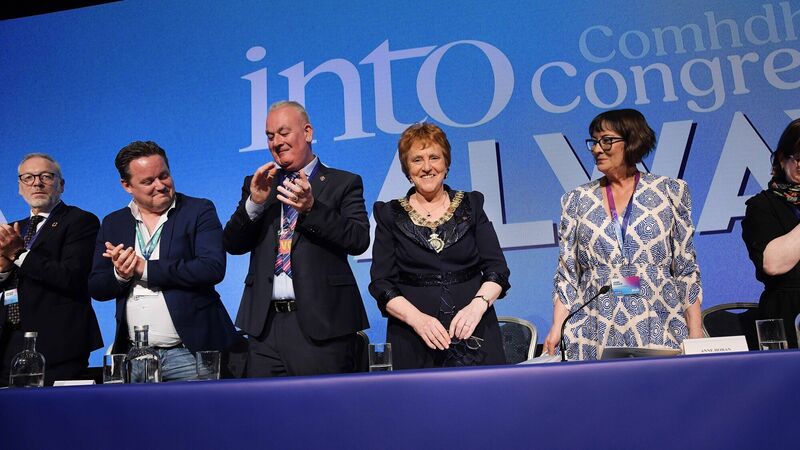'Teachers cannot be expected to manage crisis situations alone,' INTO congress hears

Almost 1,000 delegates attended the first day of the INTO annual congress in Galway, many of them primary school or special education teachers. Picture: Moya Nolan
Traumatic physical injuries, “chronic” underfunding, “crippling” school running costs, and the housing crisis were high on the agenda as primary school teachers gathered for their annual congress.
Too many teachers are being left to cope alone after traumatic physical incidents in classrooms or on school yards, according to the Irish National Teachers’ Organisation (INTO).










